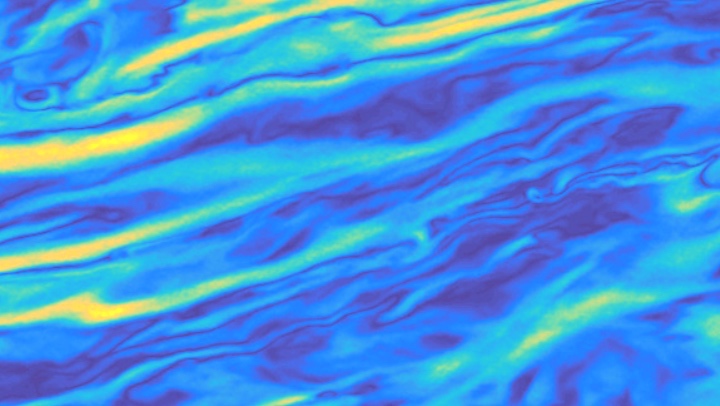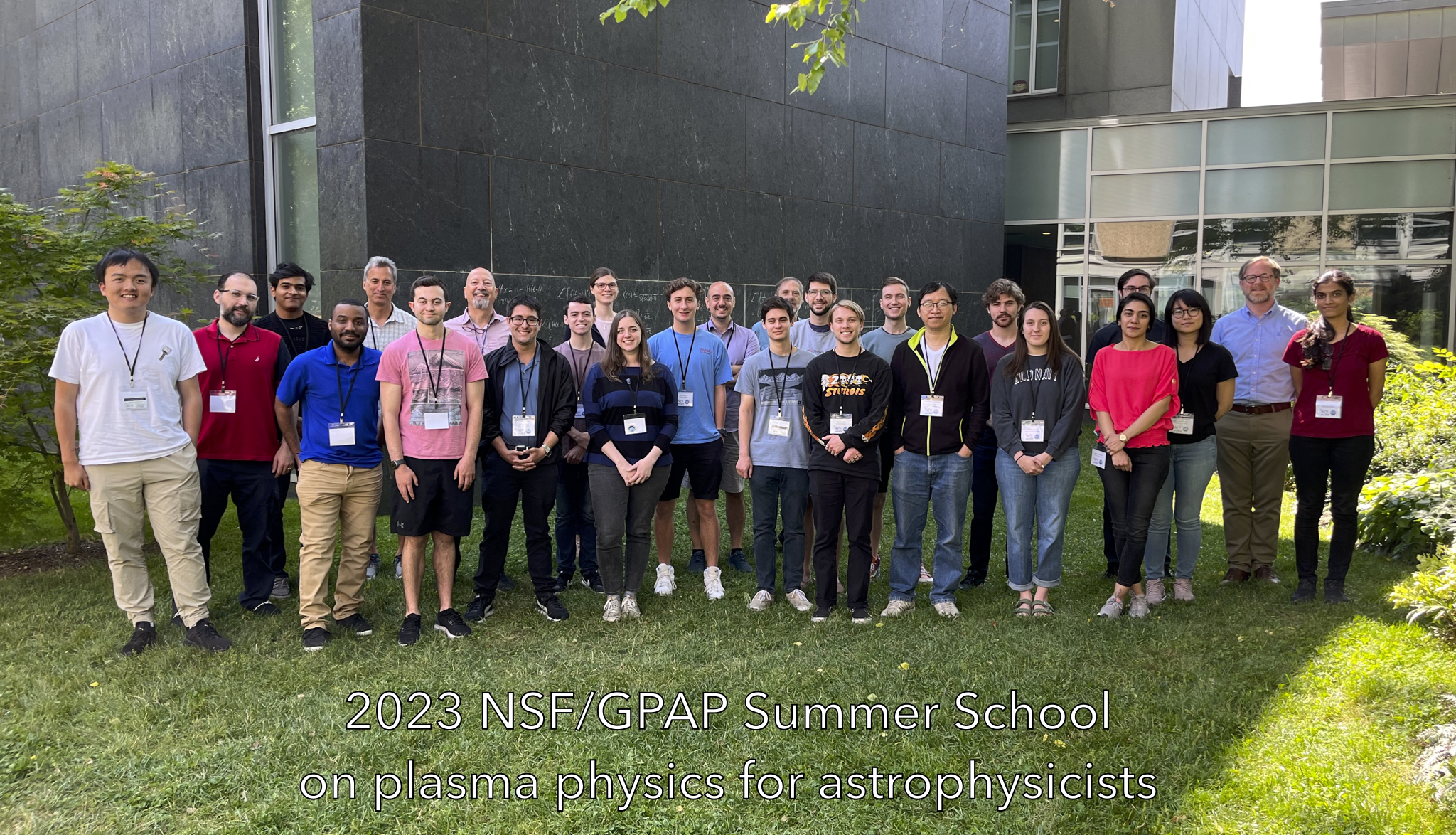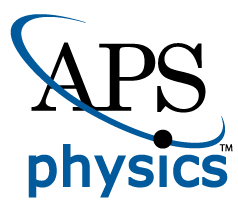Institute for Advanced Study, Princeton
June 1 - 5, 2026
More than 99% of the visible Universe is composed of plasma. It should then come as no surprise that a solid understanding of basic fluid and plasma dynamics has been the foundation of many of the greatest successes in theoretical astrophysics and space physics. Unfortunately, most undergraduate and graduate astronomy programs in the USA do not regularly offer courses or formal training in basic plasma physics. As a result, a knowledge of plasma physics in these fields is often acquired “on the job” — informally and piecemeal through research applications.
To address this gap, with the support of the National Science Foundation (NSF) and the Topical Group in Plasma Astrophysics (GPAP) of the American Physical Society Division of Plasma Physics, we are offering an intensive 5-day summer school on the fundamental physics of astrophysical and space plasmas, targeting young academics in the fields of astronomy and space science whose research and careers would benefit from acquiring a solid foundation in plasma physics. The school is open to 20 upper-level undergraduate and early-career graduate students, chosen through an application process. Lodging and most meals will be provided, free of charge, to the participants. Limited travel assistance is available.
The 5-day summer school will have three components, led by faculty members and researchers from
Princeton University, University of Arizona, Columbia University, Dartmouth College, University of Illinois
at Urbana-Champaign, the Institute for Advanced Study, University of Michigan, and University of Otago:
A series of lectures on basic plasma physics of relevance to astronomy and space science, including:
Introduction to astrophysical plasmas (fundamental length and time scales, parameters, examples)
Single-particle motion (cross-field drifts, guiding-center theory, adiabatic invariance, relation to MHD)
Ideal magnetohydrodynamics (derivation and assumptions, flux freezing, linear waves, instabilities)
Reconnection (Sweet-Parker theory, tearing-mode analysis, plasmoid instability)
Fluid/MHD turbulence (Kolmogorov, Irishnikov-Kraichnan, and Goldreich-Sridhar theories)
High-energy astrophysics (shocks, particle acceleration, compact objects, relativistic and radiative effects)
Kinetic theory (introduction, collisionless damping, kinetic instabilities)
High-energy-density physics and laser-plasma experiments
Computational and laboratory methods in plasma astrophysics
For each topic, a connection to observed systems — both in space and the laboratory — will be made, alongside illustrative examples of modern research that leverages a detailed knowledge of these topics. Lecture notes will be provided to all participants.Problem sets and solutions on these topics.
A session on navigating graduate school, from the application process to receiving your PhD






